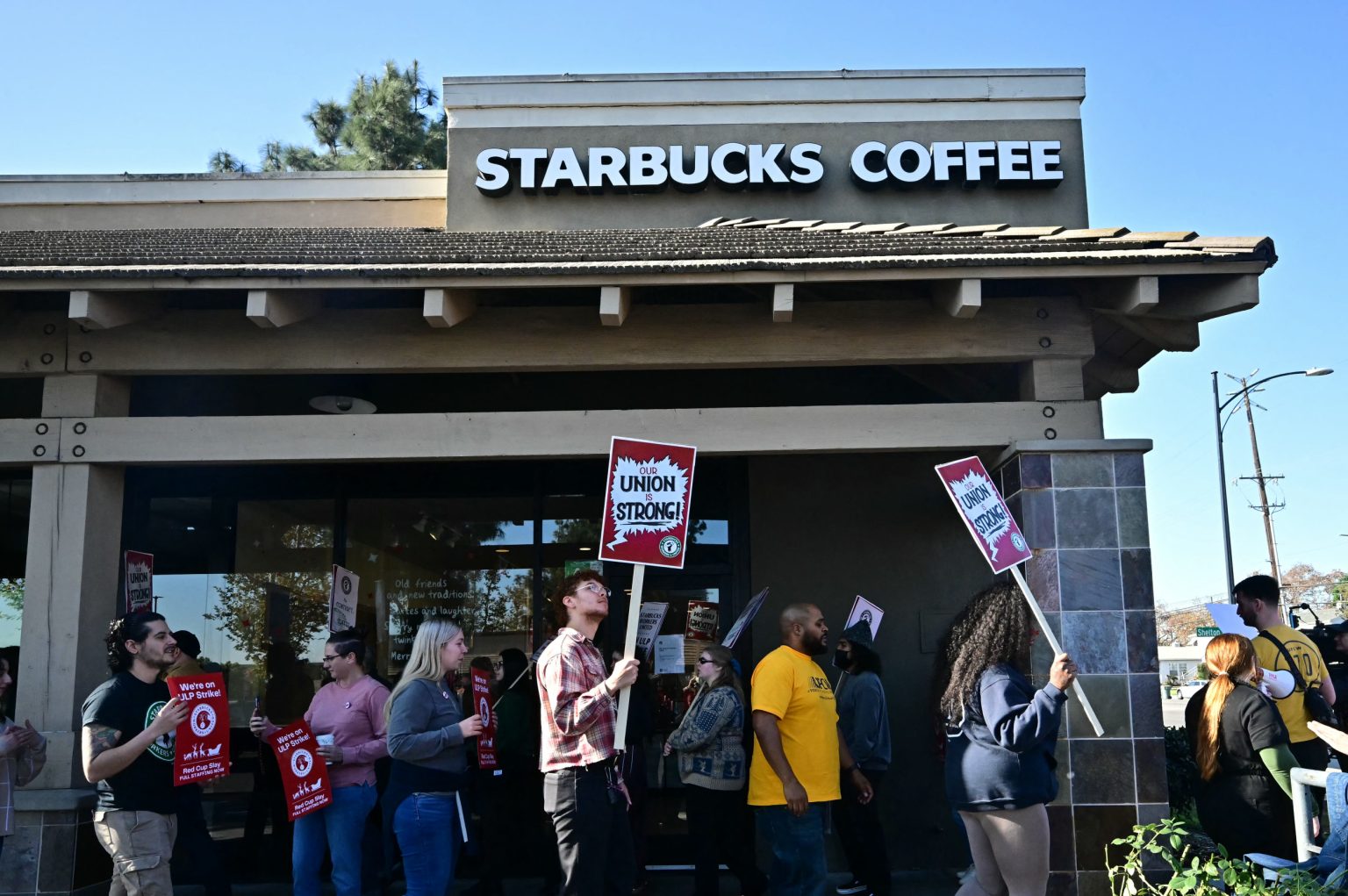The holiday season at Starbucks is brewing with more than just festive beverages this year. A significant labor dispute has erupted, impacting hundreds of stores across the United States and potentially affecting operations during the peak holiday rush. Workers, organized under Starbucks Workers United (SWU), have initiated strikes, demanding improved wages, benefits, and working conditions. While Starbucks maintains that the strike’s impact is minimal, the action targets key markets like New York, Los Angeles, and Chicago, potentially disrupting service in high-profile locations. Customers are advised to check local store hours before venturing out for their holiday caffeine fix.
Starbucks has a tradition of remaining open seven days a week, including Christmas Eve and Christmas Day. While not all locations operate on holidays, and hours typically vary by store, the company has reaffirmed its commitment to holiday operations this year. Executive Vice President Sara Kelly stated that the vast majority, between 97% and 99%, of the company’s 10,000+ U.S. stores are expected to remain open, minimizing disruption. However, the ongoing strike, involving over 300 locations, introduces an element of uncertainty, especially in major cities where union representation is stronger. The potential for closures exists, and customers are encouraged to check their local store’s operating status.
Christmas Day operations at Starbucks are also expected to continue as usual, with many stores offering a limited menu for those seeking a holiday caffeine boost. While corporate headquarters has confirmed its commitment to maintaining holiday hours at most locations, the strike could lead to some closures, particularly in cities with a high concentration of unionized stores. The situation remains fluid, and the impact of the strike on Christmas Day operations may vary depending on the progress of negotiations between the company and SWU. Customers are advised to check local store information for the most up-to-date details.
The core issue fueling the strike revolves around unresolved contract negotiations. SWU is pushing for better wages, improved staffing levels, and more manageable scheduling practices. Workers are demanding a $20 per hour minimum wage, annual raises, and enhanced healthcare benefits. The union argues that current wage proposals are inadequate, especially when contrasted with the significant investment in executive compensation, citing the CEO’s $113 million compensation package this year as a point of contention. Despite ongoing negotiations and some tentative agreements, the union maintains that Starbucks has yet to present a comprehensive and satisfactory economic package.
The strike, characterized as the largest in Starbucks history, spans over 300 stores nationwide. Cities impacted include Boston, Denver, Philadelphia, and Pittsburgh, with workers walking out to underscore their demands. The labor action aims to pressure Starbucks into addressing their concerns and reaching a fair contract agreement. The union’s argument highlights the disparity between executive compensation and worker wages, framing the strike as a fight for fair treatment and a living wage.
As New Year’s Eve approaches, Starbucks intends to maintain operations at most locations, typically with reduced hours to accommodate both staff and customer needs. However, the ongoing labor dispute introduces uncertainty. If the strike continues into the New Year without a resolution, it could disrupt operations during the holiday weekend. Customers planning to visit Starbucks on New Year’s Eve should monitor the situation and check local store hours for potential changes or closures due to the ongoing labor action. The resolution of the strike will ultimately determine the extent of any operational disruptions at Starbucks during the remainder of the holiday season.

